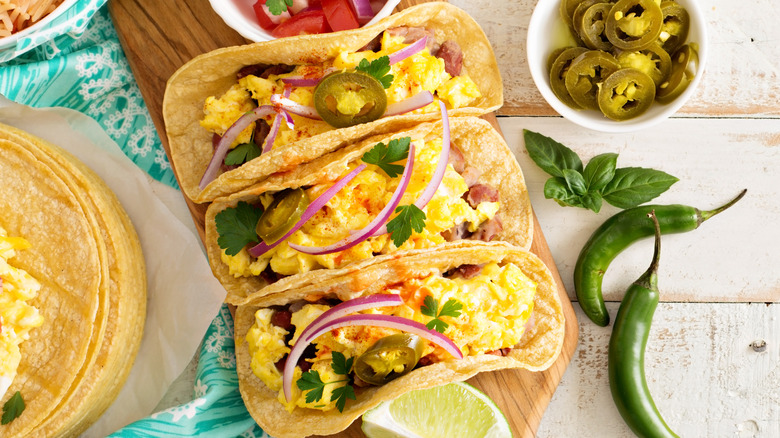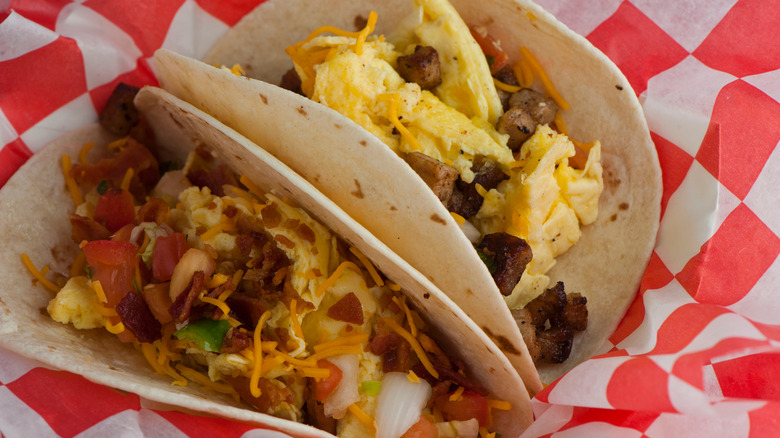The Origins Of The Breakfast Taco
It's no secret that people can't get enough of tacos. As of 2019, U.S. consumers put away an average of over 4.5 billion tacos every single year. October 4 is National Taco Day, and folks have been observing "Taco Tuesdays" since the '80s. And while Ina Garten loves breakfast for dinner, other foodies love dinner for breakfast. That's right — we're talking about the breakfast taco. According to Serious Eats, breakfast tacos typically come in a flour tortilla, less often than corn. In Texas' Rio Grande Valley, breakfast tacos are customarily filled with scrambled eggs and meat like chorizo, bacon, "machacado" salt beef, or sliced hot dogs. These Tex-Mex-style Migas Breakfast Tacos include lime, diced tomatoes, and green chiles.
But, whether you like them "picante" or "leve," the origin of the breakfast taco has emerged as the perhaps-unlikely subject of contentious debate. Believe it or not, the conversation surrounding the official birthplace of the breakfast taco is as spicy and varied as the dish itself. Here's the lore.
From Mexico to Texas (but exactly where in Texas is another matter)
Breakfast tacos originally started in northern Mexico as "tacos de guisados," says Serious Eats, and from there, they migrated Stateside to Texas. Many Tex-Mex fans, it seems, count breakfast tacos as the quintessential dish of Austin. But California-based outlet OC Weekly emphatically disagrees, arguing that breakfast tacos belong to Texas' Rio Grande Valley, or San Antonio, but not to Austin. The earliest recorded mention of the phrase "breakfast tacos," it says, came from a 1975 entry in "The Arizona Republic" about a dish served in San Antonio.
But whichever side of the debate you fall on, breakfast tacos remain an undisputed Tex-Mex staple and a multi-cultural fan favorite. Robert Vasquez of Central Texas restaurant chain The Tamale House attributes the popularization and subsequent nationwide fanbase of tacos in general to the general desegregation of Mexican-versus-American foods (via Slate). Tacos of all kinds expanded beyond the kitchens of immigrant Mexican families in Texas, says Vasquez, because traditional Mexican dishes became mainstream during the late 20th century. Roberto Espinosa of Austin restaurant Tacodeli agrees. Of his usual patrons, Espinosa says, "It's pretty much a cross-section of America," via Eater. "The college kids love them for the same reasons I did growing up. It's a pretty democratic taco — come one come all kind of thing."

